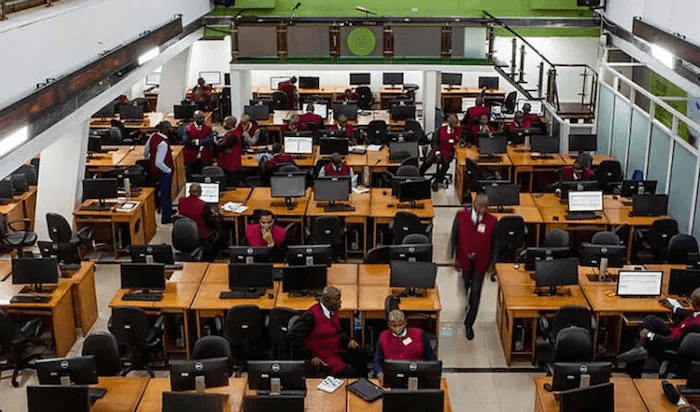– Urges action on UNESCO’s benchmark for education
– Okpebholo salutes Edo teachers’ contributions to state Devt
– Gov Oyebanji extends Ekiti teachers’ retirement age to 65 years
– Kwara NUT tasks govt on implementation of teachers’ allowances, harmonised retirement age, others
– As Koiki urges govt to treat teachers as partners in nation-building
Onyebuchi Ezigbo in Abuja, Adibe Emenyonu in Benin City, Hammed Shittu in Ilorin, Funmi Ogundare and Gbenga Sodeinde in Ado Ekiti
The Nigeria Labour Congress (NLC) has bemoaned the poor salaries being paid to teachers in public schools and most private institutions in Nigeria.
It said that most teachers working in private schools are not paid the national minimum wage and do not have health insurance neither or entitled to pensions.
In addition, it said the present students to teacher ratio is unacceptably very high, insisting that government at all levels should ensure that public education is better funded by implementing UNESCO’s benchmark for education.
On his part, the Edo State governor, Senator Monday Okpebholo, extended his appreciation and goodwill to all teachers in the state on the occasion of World Teachers’ Day.
In a statement through his Chief Press Secretary, Mr. Fred Itua, the governor lauded the dedication, resilience, and invaluable contributions of teachers to the development of Edo State and humanity at large.
The statement read: “Today, as the world celebrates the noble profession of teaching, Governor Okpebholo joins the people of Edo State in celebrating our educators, the bedrock of our society.
“Our teachers are more than just instructors; they are nation builders, mentors, and the architects of our future. Their tireless efforts and commitment to moulding the next generation of leaders, innovators, and productive citizens are truly commendable.
“The theme for this year’s celebration resonates deeply with our administration’s commitment to revitalizing the education sector. We recognize that no educational reform can succeed without the active participation, professional development, and welfare of our teachers.
“The Okpebholo administration is committed to implementing policies that will not only improve the working conditions of our teachers but also enhance their capacity through continuous training and access to modern teaching tools.”
Governor Okpebholo acknowledged the pivotal role teachers play, often under challenging circumstances, in ensuring that quality education remains accessible to every child in Edo State.
In Ekiti State, Governor Biodun Oyebanji has approved the immediate extension of the retirement age of teachers in the state from 60 years to 65 years and service year raised from 35 to 40 years.
The governor also rewarded outstanding teachers in the state with cash gifts totaling N46 million, approved upward review of Science Teachers and Head of Department allowances, as well as immediate payment of 2019 leave bonus areas to further motivate the teachers.
The governor made this declaration on Sunday during the 2025 World Teachers’ Day celebration held at the Ekiti Parapo Pavalion, Ado Ekiti. No fewer than 5,000 teachers attended the colourful event which was turned into a carnival as teachers across different cadres adorned in Ankara uniform sang and danced in appreciation of the Governor’s teacher-friendly policies.
In a related development, the Kwara State Wing of the Nigeria Union of Teachers (NUT) also called on the state government to address outstanding welfare issues affecting teachers in the state.
The welfare issues according to the NUT in the state include, the non-implementation of the 27.5 per cent Teachers Specific Allowance (TSA), harmonised retirement age and rural allowances.
Speaking at the 2025 World Teachers’ Day celebration on Sunday in Ilorin, the State Chairman of the Union, Comrade Yusuf Agboola, said the future of education in the state depends largely on how well teachers are treated, equipped and motivated.
Meanwhile, education advocate and Chief Executive Officer of Greensprings School, Mrs. Lai Koiki, yesterday, called on government and stakeholders to move beyond lip service and treat teachers as partners in national development.
She emphasised that true educational transformation can only occur when teachers are empowered to collaborate, supported, and adequately rewarded for their pivotal role in shaping the nation’s future.
Speaking on this year’s UNESCO theme, ‘Recasting Teaching as a Collaborative Profession’, Koiki said teaching should no longer be seen as a solitary pursuit but as a shared mission involving teachers, school leaders, parents, and communities.
NLC in its solidarity message to mark this year’s World Teachers Day celebration, said a situation whereby school fees keep skyrocketing while salaries of teachers remain embarrassingly poor is not acceptable.
It said: “In Nigeria, we have perfected the art of praising teachers to high heavens while starving them on earth. We speak of the nobility of the profession, yet we reward that nobility with indignity. With dishonour and with scorn.
“This paradox is starkly evident in our schools. We see a tragic situation where fees and levies are skyrocketing, placing a heavy burden on parents, yet the salaries of the teachers remain embarrassingly poor.
“Where does this money go. It certainly does not reach the teacher in the classroom. This is an injustice that undermines the very fabric of our educational system.”
According to NLC, UNESCO’s benchmark for education is that about 6 percent of the GDP should be allocated to education while about 20 percent of total public expenditure should be voted to education.
The Congress further said that governments at all levels must prioritize education in their budgets and ensure that investment in education is
cohesive.
“If we want quality educational outcomes, we must first ensure quality of life for our teachers. Nigeria must make deliberate investment into our educational system.
“You cannot give what you do not have. The rewards of teaching must not be reserved for heaven; they must be delivered here on earth. The benefits of a functional education system must not be for a Nigeria that is in heaven, but for the Nigeria we are building now,” it said.
On the decreasing population of qualified teachers, NLC said that an average teacher in our Primary and Secondary schools teaches about 50 pupils/students on the average, noting the ratio is very high and undermines the teaching-learning environment.
The apex labour centre said that collaborative effort across government levels has become important to fashion effective national framework to bridge this gap and train effectively the unqualified so that they can deliver better educational outcomes.
Meanwhile, the Kwara State Wing of the Nigeria Union of Teachers (NUT) at the event themed, “Recasting Teaching as a Collaborative Profession: Together for Teachers; Together for Tomorrow”, featured a lecture delivered by Professor Lanre Olukunmi Olaitan, Dean, Faculty of Education, University of Ilorin.
In his welcome address, Agboola commended the state government for the regular payment of salaries, the financial backing of the 2023 and 2024 promotions of TESCOM teachers, and the recruitment of over 3,000 teachers across basic and senior secondary schools.
He however lamented that much still needed to be done.
According to him, “The 27.5 per cent Teachers Specific Allowance for TRCN-certified teachers and 21 per cent for non-TRCN certified teachers have not been implemented in Kwara.
The government has also not keyed into the 65/40 years national harmonised retirement age for teachers, and rural allowances for those teaching in remote areas remain unattended to.”
“The children in our classrooms today are the leaders of tomorrow,” he added. “But for us to give our best, we must be equipped, respected and supported. Education is not a one-man show; it takes a system and a united teaching force.”
Agboola further stressed that beyond welfare, the profession needed to be repositioned to foster unity and growth.
“Let us recommit ourselves to unity within the teaching profession, foster mentorship between senior and junior teachers and create platforms for peer learning and innovation.
“We must champion collaboration not just in words but in practice,” he said.
In his goodwill message, the NUT National President, Comrade Audu Titus Amba, represented by Comrade Dayo Ajala, said, “Governments are called upon to adequately fund public education, invest in teachers and support them in creating a peaceful, fair and sustainable future for all.
Without deliberate investment in teachers, the future of education is at risk.”
He urged the government to increase education budgetary allocation, stressing that “a conducive learning atmosphere will bring about greater service delivery and quality learning outcomes.”
According education advocate and Chief Executive Officer of Greensprings School, Mrs. Lai Koiki, “no teacher, however gifted, thrives in isolation. When educators unite, they become innovators, troubleshooters, and co-creators of better learning.”
In an interview with THISDAY, Koiki decried the poor treatment of teachers across many Nigerian states, noting that over 50 per cent of states reportedly owe teachers at least three months’ salaries, while the 2025 federal education budget underfunded teacher salaries by about ₦290 billion.
She also highlighted the severe teacher shortage, with some classrooms having a pupil-to-teacher ratio as high as 1:35, resulting in overwork and reduced student engagement.
“These statistics are not just numbers,” she stated. “They are warning signals of a system that risks losing its foundation. Teachers are struggling to meet household expenses, their morale is low, and students ultimately pay the price.”
The founder described the three-month teachers’ strike in the Federal Capital Territory earlier this year as a wake-up call for all stakeholders, stressing that neglecting teachers’ welfare erodes trust and weakens the education system.
She called for policies that bridge the gap between classroom realities and top-down directives, ensuring that teachers are recognised not merely as implementers but as co-designers of education reform.
She said: “If we are to recast teaching as a collaborative profession, then teachers must be given a voice in shaping curriculum, assessment, and school improvement strategies.”
While honouring teachers as the unsung architects of tomorrow, Koiki who also the chairperson, Association of Private Educators in Nigeria (APEN) urged Nigerians to back celebration with action.
“Appreciation must come with tangible support, fair pay, professional growth, and a culture of collaboration that uplifts both teachers and learners,” she added.
She further noted that when teaching is understood as a collaborative, respected, and well-supported profession, Nigeria will move a step closer to the education its children deserve.
Other teachers who also spoke to THISDAY, decried the poor welfare, working conditions especially in public schools.


